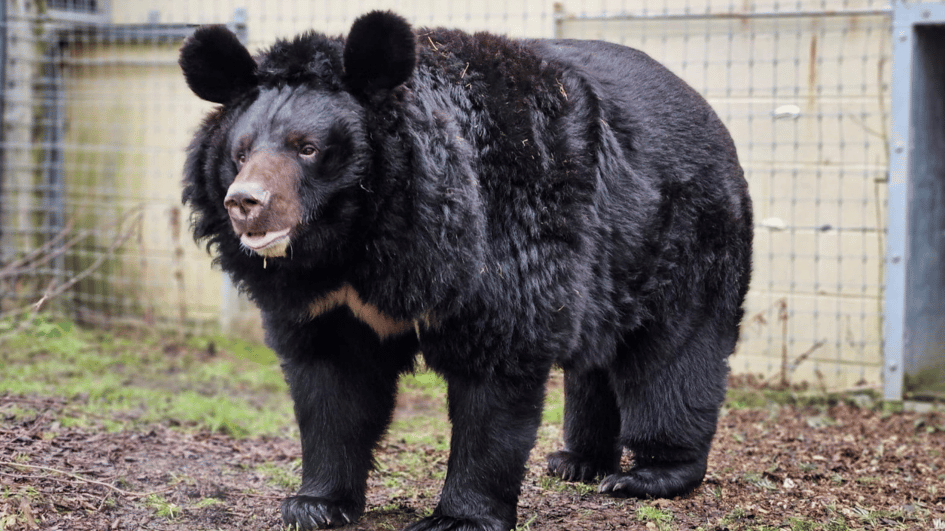A refugee bear from Ukraine finds a new home in Scotland
LONDON

An unlikely refugee from the war in Ukraine - a rare Asiatic black bear - arrived at his new home in Scotland on Jan. 12 and quickly took to a meal of cucumbers and watermelon.
The 12-year-old Yampil was named for a village in the Donetsk region where he was one of the few survivors found by Ukrainian troops in the remains of a bombed-out private zoo.
Yampil, who had previously been called Borya, was discovered by soldiers who recaptured the devastated city of Lyman during the Kharkiv counteroffensive in the fall of 2022, said Yegor Yakovlev of Save Wild, who was among the first of many people who led the bear to a new life.
The bear was found in a menagerie that had long been abandoned by its owners. Almost all the other animals had died of hunger, thirst or were struck by bullets or shrapnel and some were eaten by Russian troops. Yampil narrowly missed the same fate, suffering a concussion from a projectile that landed nearby.
What followed was an odyssey that your average bear rarely makes, as he was moved to Kyiv for veterinary care and rehab, then shipped to a zoo in Poland, then to an animal rescue in Belgium, where he spent the past seven months, before landing in the United Kingdom.
The bear was skinny but not malnourished when he was found, said Frederik Thoelen, a biologist at the Nature Help Center in Belgium. He now is estimated to weigh a healthy 200 kilograms, Thoelen said.
The bear was trained in the past two weeks to move from his enclosure to the crate that would transport him across Belgium to Calais, France, then across the English Channel on a ferry to Scotland. Pastries from a local bakery were used for good measure to lure him into the cage, where he was sedated for the journey.
Yampil arrived at the zoo about 25 kilometers west of Edinburgh and immediately made himself at home. He feasted on cukes - said to be his favorite food - and melon, said Adam Welsh, who works at Five Sisters.
The Asiatic black bear is listed on the International Union for Conservation of Nature’s Red List of Threatened Species as vulnerable to extinction in the wild, where it can be found in central and southern Asia, Russia and Japan. It’s known for the distinctive white crescent patch on its chest that gives it the nickname moon bear. It can live for up to 30 years in zoos.
















